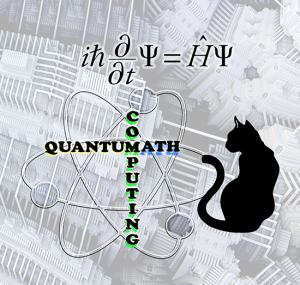 The aim of this program is to empower mathematics to change quantum information science, and to explore the rich overlap between pure and applied mathematical sciences and quantum information science. The broad goal is to cultivate and amplify the impact of mathematical sciences on quantum information science, and, conversely, to grow the impact of quantum information science on mathematics. With this broad goal in mind, the program will convene many sub-communities of mathematics together with many sub-communities within quantum science (both theoretical and experimental) so as to encourage cross fertilization of ideas and the creative emergence of discoveries and new communities.
The aim of this program is to empower mathematics to change quantum information science, and to explore the rich overlap between pure and applied mathematical sciences and quantum information science. The broad goal is to cultivate and amplify the impact of mathematical sciences on quantum information science, and, conversely, to grow the impact of quantum information science on mathematics. With this broad goal in mind, the program will convene many sub-communities of mathematics together with many sub-communities within quantum science (both theoretical and experimental) so as to encourage cross fertilization of ideas and the creative emergence of discoveries and new communities.
The program will explore both how pure mathematics, applied mathematics, and data science can be applied to define and understand new concepts that arise in quantum information science and the quantum description of complex phenomena, and also how pure and applied mathematics may be advanced by the concepts and applications of quantum information science generally and quantum computing in particular. Among the important challenges addressed in this program is the effort to understand fully what are the new capabilities that quantum models for computation offer beyond classical models. Another important challenge is that of describing the structure and dynamics of complex quantum systems. Descriptions of few-body quantum systems are relatively well at hand and understood, even though surprises continue to arise. For larger systems, scientific progress has relied on various effective mathematical treatments. The drive to control large-scale quantum systems and use them to realize quantum computation challenges us to extend our treatments and obtain a deeper understanding of their structure and limitations. A third challenge is understanding where quantum information science can address current limitations in applied mathematics, data science, and numerical simulation.
This program will bring together mathematicians, physicists, computer scientists, and others interested in pushing the boundaries of quantum computing.
Di Fang
(Duke University)
Eric Hudson
(University of California, Los Angeles (UCLA))
Lin Lin
(University of California, Berkeley (UC Berkeley))
Jarrod McClean
(Google)
Prineha Narang
(University of California, Los Angeles (UCLA))
Richard Ross
(University of California, Los Angeles (UCLA))
Dan Stamper-Kurn
(University of California, Berkeley (UC Berkeley))
Konstantina Trivisa
(University of Maryland)